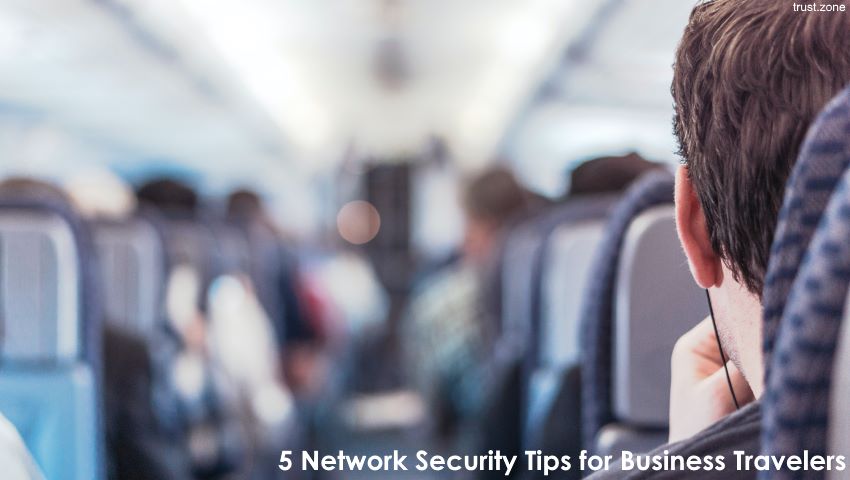Business travelers are prime targets for thieves and scammers looking to steal their computers and the valuable information they may contain. Before you go on your next business trip, follow these security tips to help keep your computer and its contents safe from harm.

Take a few minutes before you leave the safety of your office network to install all of the latest security patches for your operating system and other applications on your computer. It only takes a little while and it can help prevent your computer from falling victim to OS and app-based security exploits that hackers will attempt to use against your system.
You should also update your antivirus software's definitions and schedule them to auto-update if possible. It also might be a good time to look into installing a Second Opinion Malware Scanner which helps act as a second line of defense, should your primary anti-malware software let something slip past its defenses.
Unsecured open Wi-Fi hotspots may be a tempting option for getting some free bandwidth while on travel, but you should be leery of them because the price of free Internet may include getting tricked into loading malware on your system or having your account credentials stolen by hackers using sniffer software.
The Internet Crime Complaint Center (IC3) recently issued a warning to business travelers, advising them to be leery of any pop-up messages they receive while using hotel Wi-Fi hotspots as they may be generated by hackers intending to trick users into loading malware disguised as a security update.
Cybercriminals can set up fake hotspots for the purpose of stealing account credentials from users that connect to them. These malicious hotspots allow the criminal to eavesdrop on the user, recording account information, passwords, etc, as the user browses the web. Fake hotspots can also be used to redirect users to malicious sites that may infect their computers with malware.
Every traveler should consider using a VPN when connecting to unsecured hotspot. VPN encrypts your network traffic on public Wi-Fi, so hackers can't see websites you are visiting.
Virtual Private Networks (VPNs) used to be a luxury that only large corporations could afford. Now personal VPN services are everywhere and cost as a cup of coffee, allowing the average Joe the ability to protect all of his network traffic with a wall of strong encryption.
Personal VPNs are like kryptonite to hackers, they hate them. Trust.Zone offer free test period so you can try before you buy. I
The data on your laptop can be worth much more to a criminal than the laptop itself. Criminals love data, whether it's personal information or company trade secrets. If it is something that has value on the black market, you can bet that they will try to sell it.
You can prevent the bad guys from being able to view the contents of your hard drive by encrypting its contents with whole disk encryption software. There are several ways to encrypt your drive and a number of them are free.
If your laptop is ever stolen, you might be able to recover it, provided you had the forethought to install tracking software such as LoJack for Laptops or Find My Mac. Lo Jacking software can help you and the proper authorities find your stolen laptop by using GPS and Wi-Fi hotspot information to allow your computer to relay its present location, without the thief's knowledge. Oftentimes, the software can even take a picture of the perpetrator via your computer's built-in webcam and e-mail it to you.
Author's Bio:
John M. Caviness is a successful marketing manager at do my essay service. This job gives him an opportunity to express his opinion and thoughts on different topics including cyber security.